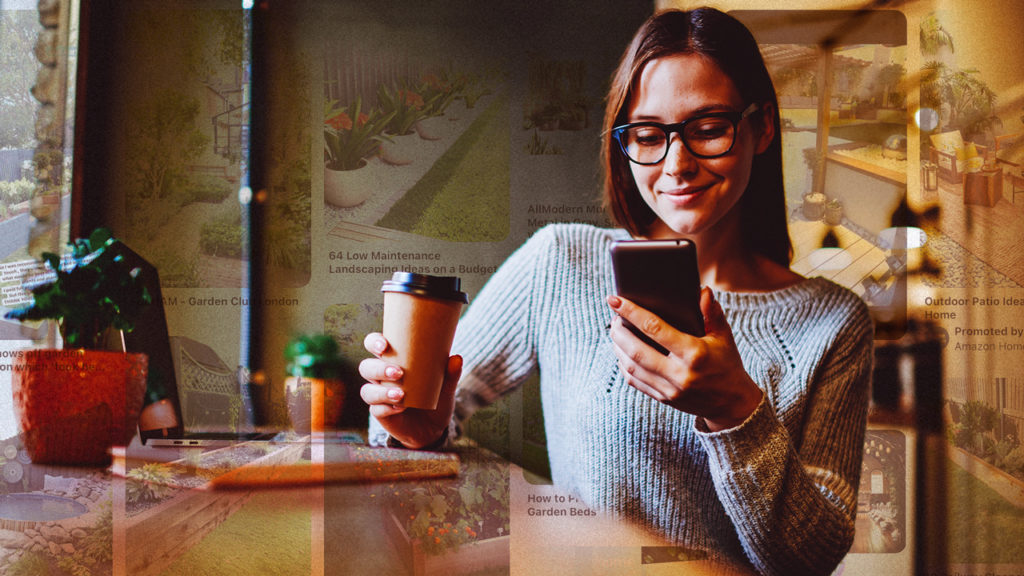This week in social media news, Pinterest launches a new ad format called Idea ads, Twitter will let businesses display location, hours and contact info on their profiles, YouTube Shorts now reaches 1.5 billion monthly users and more.
Pinterest Introduces New Video And Image-Driven Idea Ads
Pinterest has launched a new ad format called Idea ads, which will enable advertisers to showcase a brand’s website, get step-by-step breakdowns, view ingredients lists and more. Similarly, Pinterest’s new “Idea ads with paid partnership” enables Pinterest creators to partner with brands for interactive storytelling. In the same blog, Pinterest announced a new paid partnership tool for creators, allowing them to tag brand partners in their content.
Why it matters: Pinterest’s new Idea ads are an expansion of its TikTok-like Idea Pins, a multi-page video format it launched in May 2021. According to the platform, people who saw Idea ads were 59 percent more likely to recall that brand. And brands that worked with creators saw 38 percent higher brand awareness and 37 percent higher Pin awareness.
Globally, brands and advertisers are witnessing increased traffic to their business from “Idea ads with paid partnership,” including Gatorade and Scotch in the US, and M.A.C. Cosmetics Australia, says Pinterest.
The details: Available in 30 countries worldwide, the new Idea ad format offers multi-page, fullscreen storytelling where advertisers can showcase their ideas in action.
And through the new paid partnership tool, creators will be able to showcase sponsored deals by tagging brand partners directly in their content.
Twitter Allows Local Businesses To Display Location, Contact Info
Twitter has launched a new feature called Location Spotlight that will allow brick-and-mortar businesses with professional accounts to display on their profile a contact card detailing their location, hours and additional contact methods.
Why it matters: The new feature makes Twitter more of a one-stop shop for consumers researching brands, products and services by allowing stores to display the sort of information that users normally go to Google for.
The details: Offered in the U.S., the U.K., Canada and Australia, Twitter’s Location Spotlight is available for Twitter Professional account users and appears on a business’ profile.
Users that tap on the location can get directions to the business through a third-party mapping app like Google Maps. The new feature is similar to business info cards on Google Maps and was released on the heels of Twitter’s launch of multiple commerce-related functions such as virtual storefronts and product drops.
YouTube Shorts Attracts 1.5 Billion Monthly Users
Over 1.5 billion people are now watching YouTube Shorts monthly, reports The Verge.
Why it matters: YouTube has been making attempts to compete with TikTok in several ways, including offering some creators as much as $10,000 per month when they make popular videos, depending on engagement and viewers’ locations.
As more YouTube users venture to Shorts rather than long-form videos, monetization and ad revenue have become an issue. In May, the platform began rolling out ads on Shorts worldwide but it wasn’t sharing ad revenue with creators at the time.
The details: After roughly two years of YouTube offering cash bonuses and expanding features to compete with TikTok, 1.5 billion viewers are watching short-form videos on Shorts. In total, about 2 billion logged-in users visit the platform every month while Shorts experienced 30 billion views per day, as of April.
Meta To Roll Out Social Hangout Hub, Horizon Home, To Quest 2 Headsets
Horizon Home, a custom social hub where you can socialize with friends and watch videos before jumping into an experience, is coming to the Quest 2 headset, Meta founder and chief executive Mark Zuckerberg announced.
Why it matters: Up until now, the Quest 2 didn’t offer a straightforward, dedicated way to socialize and required users to do things like join a party or play games to hang with their friends. The Horizon Home update provides a new way of socializing online in the world of virtual reality (VR).
The details: Demoed by Mark Zuckerberg and free climber Alex Honnold, the Horizon Home update allows users to choose a home—such as a space station or patio overlooking a mountain range—where they “wake up” after first putting on their headset.
Users will also be able to upload their own environments to call home. Rather than free locomotion, the new feature utilizes hotspot locomotion to reduce the likelihood of users’ VR avatars colliding with one another.
“Party leaders can unilaterally remove guests from both the Party and Meta Horizon Home,” a Meta spokesperson told TechCrunch. In addition, any user can use the system-level block option or submit a report while guests can exit a social situation in one click to instantly disconnect from voice chat and the general environment.

